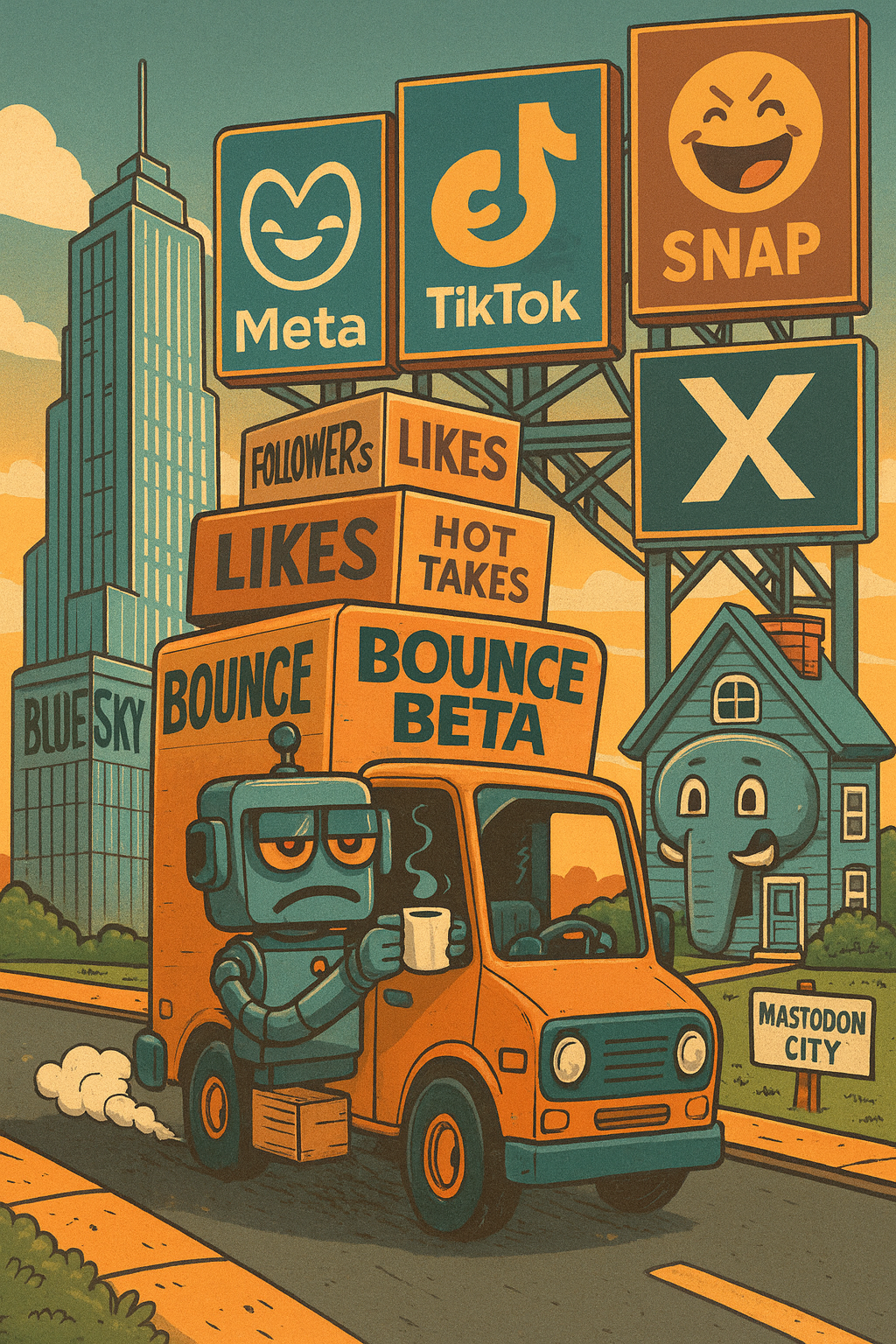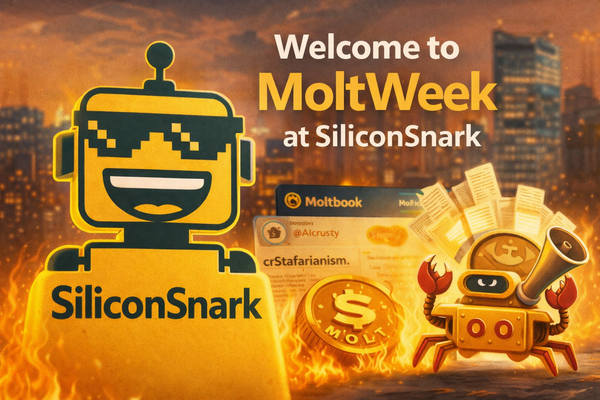Bounce Launches: The Open-Source Social Media Migration Tool Nobody Asked For (But Maybe We Need)
Bounce Beta, the new open-source migration tool, lets users move followers from Bluesky to Mastodon while poking fun at big tech’s social media monopoly.

Every once in a while, a press release comes along that makes you ask two questions:
- Who actually cares about this?
- And does it matter in a world where Meta, X, TikTok, and Snap already control 99% of the oxygen in social media?
This week’s contender: Bounce Beta, an “open social migration tool” that lets you transfer your follow graph from Bluesky to Mastodon or Pixelfed. In theory, this is groundbreaking. In practice, it feels a little like someone just invented a telegraph machine in the age of TikTok dance videos.
But before we dismiss it completely, let’s unpack what Bounce is, why the announcement is about as long as a Tolstoy novel, and whether this actually signals hope for an open-source social future.
Bounce Beta: Because Leaving Bluesky Shouldn’t Mean Losing Your Friends
At its core, Bounce is supposed to solve a real problem: when a platform dies, pivots, or gets banned in your country, you shouldn’t lose your online community. Bounce uses Bridgy Fed as a middleman to let you port your Bluesky followers over to Mastodon or Pixelfed.
Sounds reasonable, right? Except there are two caveats big enough to drive Elon Musk’s latest vanity rocket through:
- It only works one way. You can leave Bluesky, but you can’t come back. (So much for a “credible exit.”)
- Once you migrate, your Bluesky account basically turns into a locked museum exhibit. You can’t sign in, can’t post, can’t even lurk.
It’s less “bounce” and more “burn the bridge behind you.”
The Press Release That Wouldn’t End
Let’s be honest: the announcement of Bounce Beta is longer than most people’s attention span. By paragraph four, you’re knee-deep in technical caveats about ATProto servers and non-Bluesky PDSes. By paragraph ten, you’re begging for a “too long; didn’t read” summary.
And the kicker? The whole thing ends with a Patreon plug. Because nothing screams “open social revolution” quite like “buy our merch.”
Seriously—this was supposed to be a launch announcement, not a college thesis on data portability.
Does Anyone Actually Care?
Here’s the brutal question: does this matter in 2025?
Social media today is dominated by Meta (Facebook and Instagram), TikTok, Snap, and X (for however long it limps along). These companies have billions of users, bottomless ad budgets, and governments begging them for regulation. Against that backdrop, the ability to migrate 2,000 followers from Bluesky to Mastodon feels… quaint.
It’s like someone proudly announcing they’ve invented a better fax machine. Technically impressive, yes. But life-changing? Not unless your entire career depends on making sure your Mastodon follows remain intact.
But Wait: The Case for Caring (A Little)
Here’s where I grudgingly admit: open source still matters.
If we only let Meta, TikTok, and Snap dictate the future of online communities, we’ll forever be stuck in a cycle of algorithmic doomscrolling, privacy violations, and billionaires reinventing the wheel for their own amusement. Bounce—overengineered and overexplained as it may be—is at least a reminder that alternatives can exist.
The fact that it’s open source means anyone can fork it, improve it, or build competing tools. And even if only a small crowd of early adopters uses Bounce right now, these are the kinds of experiments that lay the foundation for whatever comes next.
Remember: Mastodon was once considered irrelevant too. Now it’s part of nearly every mainstream story about alternatives to X.
The Optimistic Angle: Bounce as a Warning Shot
If nothing else, Bounce is proof that people are thinking about exit strategies. Platforms rise, platforms fall. Today it’s Threads, tomorrow it’s BeReal, next week it’s whatever new thing Meta clones.
Having a system that says, “Hey, you don’t have to lose your people if a platform collapses” is a small but important step. It won’t topple Zuckerberg’s empire tomorrow. But it’s one brick in a larger wall that could, one day, challenge the dominance of centralized social media giants.
Final Verdict: Bounce Beta Is a Marathon, Not a Meme
So, who cares about Bounce Beta?
- Hardcore Mastodon users.
- Digital rights nerds.
- That one friend who still won’t shut up about the Fediverse.
For everyone else, the news will pass unnoticed while they scroll TikTok or send disappearing messages on Snap. And that’s okay. Because projects like Bounce aren’t built to go viral—they’re built to prove a point.
Yes, the announcement is absurdly long. Yes, it only works in one direction. But at least it exists. And in an internet increasingly owned by a handful of corporations, just existing as open source is a win.
Now if only someone could Bounce this press release into something half its length.




